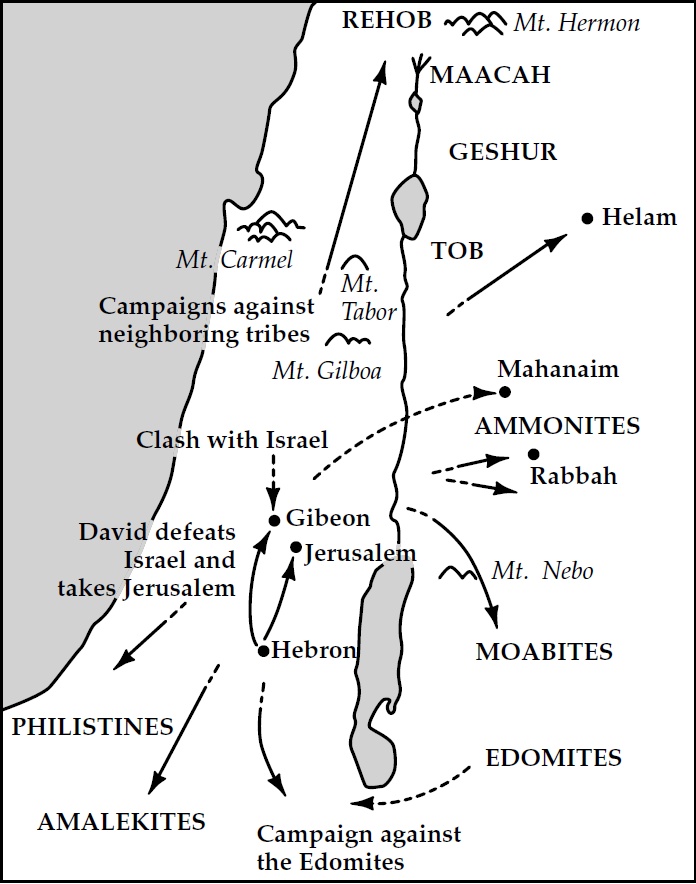2 Samuel 10 (cf. 1 Chronicles 19)
Ammon (modern-day Jordan) were populated with the descendants of Lot (Ammonites). Even though they were distant relatives, there was great hatred between the two nations. God will later pronounce a great judgement on this nation (Ezekiel 25.1-7).
After the wars in 2 Samuel 8 (see our study), the king of Ammon died. David sent a contingent of men to show respect to his friend, the deceased king. It seems that Nahash (see 1 Chronicles 19.1) showed David kindness when he fled from Saul. This is the same king that Saul defeated but did not destroy as commanded in 1 Samuel 11 (see our study). Nahash’s son, Hanun, doesn’t think David is on a friendly mission due to the influence of his counselors. It could have been a combination of both reconnaissance and condolences. We see in 2 Samuel 11.1 that David’s armies first attacked Rabbah which is a large Ammonite city.
Shaving the beard and cutting the clothing was an insult tantamount to a declaration of war. As soon as the Israelites left, the Ammonites prepared for battle by hiring mercenaries from Syria. See our study of Psalm 60 for greater detail concerning the number of men used to fight.
For more information on Joab and Abishai, see our study of 1 Samuel 26. To better understand the battles of this day and other chapters in 2 Samuel, see the map below.
This chapter, again portrays David showing kindness and being a good steward.
David was able to defeat the armies against Him because He sought God and God helped Him.